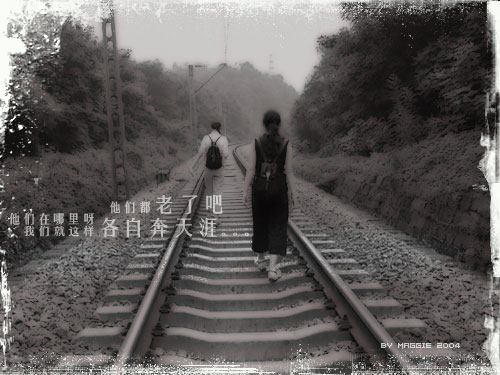Rainy Weather, Hot Weather
Farewell, Real World
Farewell, Real World
by Haruki Murakami
Translated by Christopher Allison
First, you get a boat at Uranopolis.
Any pilgrimage around to the Athos Peninsula begins there and ends
there. You depart from there and then, assuming you have a mind to
come back, you return there.
Uranopolis is a small seaside resort town at the neck of the Athos
Peninsula. The boat leaves at 7:45 every morning from the harbor
here. That's the only boat all day. It is thus a good plan to get
there the day before if possible, stay the night at a hotel, have a
leisurely breakfast, and leave yourself a comfortable margin to
catch the boat. If you miss that boat, you have to wait 24 hours,
bottled up in Uranopolis, whereupon you find yourself confronted
with quite a grave situation (as we were thus confronted).
The trip from Uranopolis to Daphne by boat takes about two hours.
Two hours is a perfect amount of time to lie on the deck and lazily
get a suntan, and during those two hours, the world unmistakably
divides into two distinct aspects. There is a decided difference in
character between the two towns, Uranopolis and Daphne. The two
villages had different origins in the first place, and the standards
and values that reign in each town now are totally different. If the
kind of people living there are different, then the directions of
their desires will be different. To put it simply, Uranopolis is
devoted to the vulgar, worldly desires of the likes of us, while, on
the other hand, Daphne is devoted to integral truth and universality
and the nurturing of faith. Moreover, these two towns, so different
in every conceivable detail, were separated by a scant one day fairy
ride.
In Uranopolis--which, by the way, means "heavenly town"--there are
lots of small hotels and bars and beaches and a wharf and campers
with Gernam license plates parked by the side of the road in narrow
spots. It is the kind of town where, if you walk any one street from
end to end, you will see pretty much everything there is to see. A
beautiful beach, an astoundingly large parking lot (probably because
people who are departing for Athos leave their cars here), and the
wharf. For some unknown reason, there is an old stone tower. A sign
reading "Wir Sprechen Deutsche" hangs above the entrance to the bar.
There is the signature aroma of calamari frying in oil. A girl in a
swimsuit wearing dark sunglasses drags her flip-flops as she lazily
crosses the street. Somewhere in the background a Michael Jackson
song flows from a boom-box at an obnoxiously high volume. It's bad,
It's bad...
In the shade, a large dog is sleeping so soundly that he seems to be
on the boundary between life and death. A backpacker grips a
fifty-cent loaf of bread in his hand as though it were vital to
future generations, as he walks along the road. At the Cafe Neon,
the local grey-beards sit side-by-side smoking cigarettes, polluting
the air around them and their own lungs. It is your average
low-budget Greek beach resort. Except that this is the last one.
This is the minor terminus of our meagre reality. From here on out,
there are no girls, no taverns, no
Michael-Jackson-in-the-background, no German tourists. Yeah, this
place is the end of the line. Last chance to fulfill any cravings.
This is the frontier of the real world.
Having missed the ferry, we tracked down a boat at the port that was
shipping construction supplies to Daphne, and after negotiating with
the captain, paid him 3000 yen and got a ride. We were the only
passengers. But at least we didn't end up having to waste a day in
Uranopolis.
At any rate, the sea was incredibly beautiful. After we had only
gone a short distance from the harbor, we seemed to enter into a new
region. I leaned over the handrail for a long time, staring down
into the sea without tiring of it at all. Greece is a place with
lots of beautiful ocean, but I can't remember any place where the
ocean was as gorgeous as here. If you're looking for beautiful
transparent blue water, you have lots of places to choose from. But
this ocean's beauty was a totally different kind of beauty. How can
I say it? It was a blue whose transparency seemed to open onto a
completely different dimension. The water was as clear as the
vacuous reaches of outer space, and was dyed a deep wine-color.
That's it: it was a blue that befuddled my eyes, like wine brewed
from the soil at the bottom of some trench had bubbled up and
stained the water. There was a bracing coolness there, a fertility,
and a terrifying depth that surpassed the realm of possibility. And
the strong sunlight of a late summer morning violently cut through
it like a knife, and burst asunder as it refracted through the
water. The boat's shadow was projected in sharp outline against the
sea-floor. Schools of fish cut through it soundlessly. The sea was
not dirty at all. Wherever you happened to look, there was nothing
that could be called pollution. It didn't even seem proper to call
this the ocean. Suddenly, I could envision some kind of ritual
before me; a sacrifice from an unimaginably distant time, carried
out according to form, whose simple kernel of beauty pierced through
even while the original meaning was lost. That's the kind of thing I
imagined.
The sea there was really as beautiful as that.
As the boat advanced through that ocean, the frying calamari and the
swimsuit girls and Michael Jackson and the Marlboro billboards and
everything else gradually receded into the distance. And then,
almost unnoticed, they disappeared. Once they had disappeared, the
mere fact of their existence became foggy in my mind. The only
things that met my eyes were the rugged coast of the peninsula and
the cliff faces. And as we went along the coast, little by little I
began to make out the austere forms of the monasteries, like a time
warp to the middle ages. This was Athos.

